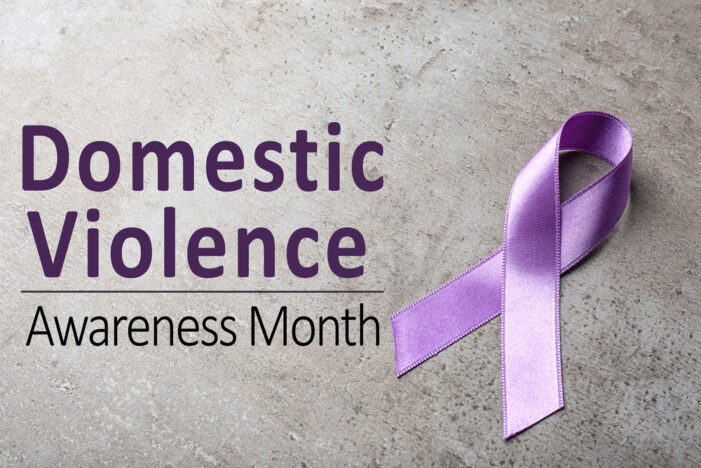By Sandy Connors
Every October, Domestic Violence Awareness Month reminds us that prevention starts long before abuse becomes visible. It’s a time to reflect on how relationships form, evolve, and sometimes deteriorate into dangerous cycles of control, fear, and emotional harm. For many survivors, the first warning signs were not bruises but boundaries crossed, emotions manipulated, and trust weaponized.
Understanding Domestic Violence Beyond Physical Abuse
Domestic violence is not confined to physical harm. It includes emotional, psychological, sexual, and financial abuse. A partner who isolates you from friends, controls your money, monitors your phone, or makes you feel responsible for their anger is not showing love—they are exercising control.
The National Coalition Against Domestic Violence defines it as “a pattern of behaviors used by one partner to maintain power and control over another.” These behaviors often start subtly—through jealousy disguised as affection, criticism masked as concern, or ultimatums justified as protection. Recognizing these patterns early can mean the difference between walking away safely and being trapped in a dangerous relationship.
Early Warning Signs of a Toxic Relationship
Toxic relationships rarely start toxic. They often begin with intensity that feels flattering—constant texts, grand gestures, and declarations of love that come too soon. But over time, this intensity turns possessive. Here are some early signs to watch for:
1. Isolation from friends and family.
2. Gaslighting and emotional manipulation.
3. Jealousy and possessiveness.
4. Disrespect of boundaries.
5. Constant criticism.
Why People Stay—and How to Leave Safely
Leaving an abusive or toxic relationship is not as simple as “just walking away.” Abusers often create dependency—emotional, financial, or psychological—that makes victims feel powerless. Fear of retaliation, shame, or concern for children can also make leaving seem impossible.
A safety plan includes practical steps such as keeping copies of important documents in a safe place, establishing a code word with trusted friends, and knowing where to go during a crisis. Organizations like the National Domestic Violence Hotline (1-800-799-SAFE) offer confidential help 24/7.
Breaking the Cycle Before It Starts
Prevention is the most powerful tool. Education—especially among youth—can disrupt the cycle of abuse before it begins. Healthy relationships are built on respect, trust, and personal space—not control or jealousy.
Legal Protections and Immigration Relief for Victims
From a legal standpoint, victims of domestic violence have rights. In New York, victims can seek Orders of Protection through Family or Criminal Court.
VAWA Spousal Abuse Petitions
Under the Violence Against Women Act (VAWA), abused spouses, children, or parents of U.S. citizens or lawful permanent residents may self-petition for immigration status without the abuser’s knowledge or consent. To qualify, victims must show a qualifying relationship, proof of abuse, a good faith marriage, and good moral character.
Once approved, VAWA self-petitioners can apply for work authorization, deferred action, and eventually permanent residence. Victims may also qualify for U or T visas if applicable. At Figeroux & Associates, our attorneys provide confidential consultations and compassionate support to guide victims safely through these legal processes.
Moving Forward: Healing and Empowerment
Healing from abuse takes time and courage. Therapy, support groups, and faith-based counseling can help survivors rebuild confidence and self-worth.
Conclusion: Awareness Is Prevention
Domestic Violence Awareness Month is about more than wearing purple—it’s about protecting lives. We must move the conversation from “Why didn’t they leave?” to “How can we prevent abuse before it starts?”
If you or someone you know is in danger, call the National Domestic Violence Hotline at 1-800-799-7233 or text START to 88788. For legal help with domestic violence or VAWA spousal abuse petitions, contact Figeroux & Associates at (855) 768-8845 or visit www.askthelawyer.us.

